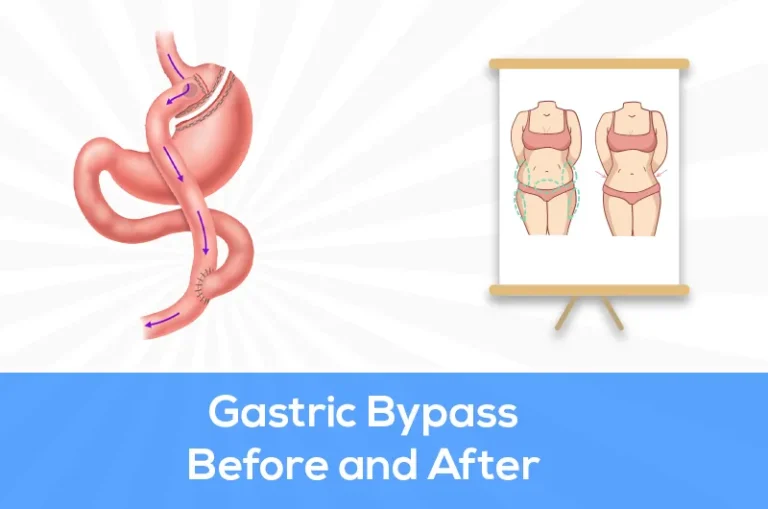Understanding what to expect before and after gastric bypass surgery is crucial for patients considering this life-changing procedure. Gastric bypass is not just a surgical intervention; it’s a step towards a new lifestyle, marked by significant weight loss, improved health conditions, and an overall enhancement in quality of life. Before gastric bypass, patients undergo a comprehensive evaluation to ensure they are suitable candidates for the surgery. This includes medical examinations, psychological assessments, and sometimes, a pre-operative diet to reduce the size of the liver.
After gastric bypass, the journey involves adherence to a strict diet that starts with liquids and gradually progresses to solid foods, a commitment to regular physical activity, and frequent follow-ups with healthcare providers. The “Gastric Bypass Before and After” experience can be profoundly transformative, with many patients reporting not just a reduction in weight, but also significant improvements in conditions like diabetes, hypertension, and sleep apnea. However, the success of gastric bypass also depends on the patient’s dedication to maintaining these lifestyle changes long-term. It’s a journey of transformation that requires commitment, adaptation, and continuous support from medical professionals, family, and peers.
Gastric Bypass Before And After Photos





Gastric Bypass Recovery: From First Day to One Year
The recovery process after gastric bypass surgery spans from the initial day up to a year, marking a period of significant adjustment and healing for patients. Immediately after gastric bypass, patients typically spend a few days in the hospital to be closely monitored for any complications. The first few weeks are crucial, as patients adapt to a liquid diet, gradually transitioning to pureed foods and eventually to solid foods, as per their surgeon’s guidance. Pain management, wound care, and avoiding strenuous activities are pivotal during this initial phase to ensure a smooth recovery.
As patients move beyond the first month, the focus shifts towards adjusting to new eating habits, incorporating regular physical activity, and attending follow-up appointments with their healthcare team. Gastric bypass recovery is not only about physical healing but also involves significant lifestyle changes that contribute to weight loss and improved health outcomes. Nutritional deficiencies are a concern, hence, adherence to vitamin and mineral supplements becomes a daily part of life.
By the six-month mark, many patients experience considerable weight loss, and improvements in obesity-related conditions become more evident. This period is vital for reinforcing healthy eating behaviors and exercise routines that will sustain long-term weight management.
Completing the first year after gastric bypass marks a milestone in the patient’s journey. This is a time to celebrate the success of significant weight loss and the resolution or improvement of comorbid conditions. However, it’s also a time to reflect on the lifestyle changes made and the commitment to maintaining these changes for life. The “Gastric Bypass Before and After” journey is transformative, requiring ongoing support, dedication, and perseverance to ensure the best possible outcomes.
Gastric Bypass Patient Success Stories and Experiences
Gastric Bypass Patient Success Stories and Experiences highlight the profound impact this surgery can have on individuals’ lives. Through these narratives, we learn about the challenges and triumphs faced by those who have undergone gastric bypass surgery, offering insight and inspiration to others considering the procedure. Patients often share their journeys of dealing with severe obesity for years and the myriad ways it affected their health, self-esteem, and daily activities.
The transformation after gastric bypass is not just physical but deeply emotional and psychological as well. Success stories frequently detail significant weight loss achievements, but what stands out are the improvements in conditions such as diabetes, hypertension, and sleep apnea, which dramatically enhance the quality of life. Beyond the health benefits, these stories often touch on the newfound confidence, energy, and zest for life that patients experience.
Gastric bypass is described as a tool that, with proper diet, exercise, and lifestyle changes, leads to sustainable weight loss and health improvements. However, these narratives also underscore the importance of a strong support system and the challenges of adapting to new eating habits and body image changes.
Each “Gastric Bypass Before and After” story is unique, reflecting the personal journey of each patient. Yet, they all share a common theme: the transformative power of gastric bypass surgery to reset lives, offering a second chance at health and happiness. These stories serve as powerful testimonials to the potential benefits of the surgery and the importance of commitment to a healthier lifestyle post-operation.
Long-term Lifestyle Changes and Gastric Bypass
Long-Term Lifestyle Changes and Gastric Bypass surgery are intrinsically linked, with the procedure serving as a pivotal starting point for a journey towards sustained health and wellness. Gastric bypass is not a standalone solution but a tool that necessitates significant, permanent adjustments in how individuals approach their diet, physical activity, and overall lifestyle to maintain the weight loss and health benefits achieved post-surgery.
Dietary modifications are one of the most critical aspects of life after gastric bypass. Patients must adopt a nutrient-rich, low-calorie diet that is high in protein but low in fats and sugars. Smaller, more frequent meals become the norm to accommodate the reduced stomach size and to prevent malnutrition and vitamin deficiencies, making the intake of vitamin supplements a lifelong commitment.
Physical activity is equally vital, with a consistent exercise regimen required to support weight loss, improve cardiovascular health, and enhance muscle tone. This shift not only aids in maintaining weight loss but also contributes to an overall better quality of life, with increased energy levels and a lower risk of obesity-related diseases.
Moreover, psychological adaptation plays a significant role in the “Gastric Bypass Before and After” experience. Patients may need to address emotional eating habits and learn new coping mechanisms that do not involve food. Support from mental health professionals, support groups, and a strong personal network is crucial in navigating these changes and fostering a positive self-image and mental health.
Lastly, regular follow-up appointments with healthcare providers are essential to monitor the patient’s health, adjust dietary plans, and address any complications or nutritional deficiencies that may arise.
Gastric bypass surgery is a transformative journey that extends well beyond the operating room. It requires a lifelong commitment to long-term lifestyle changes, including dietary modifications, physical activity, and psychological support. By embracing these changes, patients can maximize the benefits of their surgery, leading to a healthier, more active, and fulfilling life.







